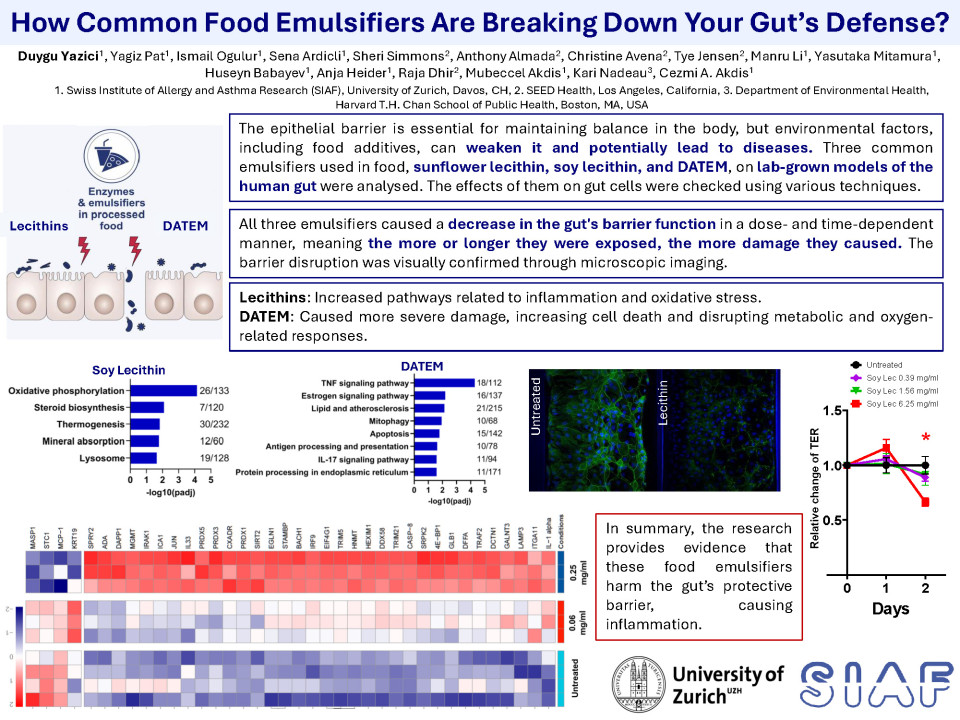The barrier function of the epithelia is crucial for maintaining homeostasis. Environmental exposures may alter the epithelial barrier integrity and influence the development of diseases. Recent studies have shown that certain surfactants and emulsifiers damage the epithelial barriers. We investigated the effects of three commonly used food emulsifiers, sunflower-derived lecithin (SunLec), soy lecithin (SoyLec) and diacetyl tartaric acid ester of mono- and diglycerides (DATEM) on gut organoids and organs-on-a-chip and adult stem cell derived intestine-on-a-chip. All emulsifiers were examined at consumer-relevant doses using transepithelial-electrical resistance (TEER), RNA-seq, and targeted proteomics. SunLec, SoyLec and DATEM elicited a dose- and time-dependent decrease in epithelial barrier function in TEER measurement. RNA-seq analysis indicated that both lecithins upregulated the pathways of response to lipid and cell death at 6.25 mg/ml. Specifically, wound healing was upregulated with SunLec exposure, while cell migration, oxidative stress and angiogenesis pathways were upregulated with SoyLec. DATEM showed increased cell death, regulation of metabolic processes and response to oxygen-related compounds. An increase in type 2 cytokine levels such as IL-4, IL-13 and IL-33 in response to SunLec, while SoyLec induced the production of proinflammatory cytokines (IL-6, IL-18) as well as alarmins (TSLP, IL-33). DATEM induced the production of not only the alarmin, TSLP, but also proinflammatory and cell death-related proteins such as caspase 8, IL-18, DDX58 and peroxiredoxins. Irregular and heterogeneous confocal microscopy staining of ZO-1 was observed after exposure to all three emulsifiers, additionally demonstrating the disruption of the intestinal epithelial barrier. In conclusion, the present study provides direct evidence on the detrimental effects of food emulsifiers, SunLec, SoyLec and DATEM on intestinal epithelial integrity, due to extensive proinflammatory, oxidative stress, tissue healing, angiogenesis and alarmin release of the epithelial cells, namely causing epithelitis. Studies are going on to examine the epithelial damaging and inflammatory effect of emulsifiers on mice in vivo and to verify the related pathways mechanistically in human intestinal organoids using CRISPR/Cas9.
Quiz question
What does Epithelial Barrier Theory claim?
Epithelial Barrier Theory proposes that barrier damage leads to inflammation and chronic disease.
Epithelial Barrier Theory proposes that barrier prevent only physical injuries, not diseases.
Epithelial Barrier Theory suggests that the epithelial barriers primarily regulate blood pressure and mood.

